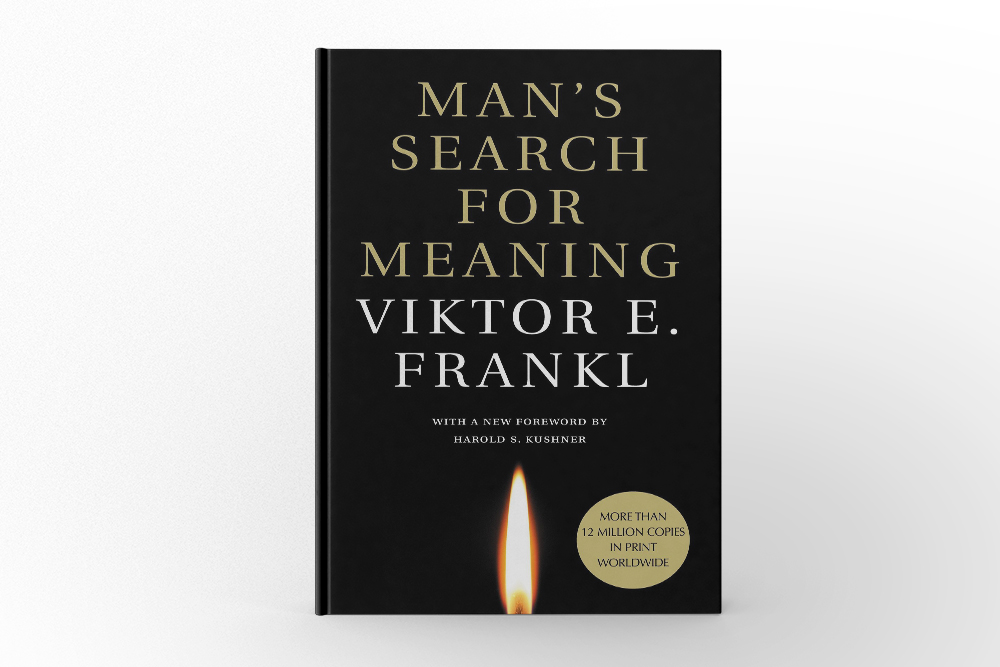“Man’s Search for Meaning by Viktor E. Frank” is a profound exploration of human resilience and the quest for purpose. This seminal work, rooted in Frank’s harrowing experiences as a prisoner in Nazi concentration camps, introduces the concept of logotherapy—a psychotherapeutic approach centered on finding meaning in life. Through his narrative, Frank demonstrates that even in the most brutal conditions, the human spirit can find ways to endure and thrive. This article delves into the book’s content, themes, and the author’s background, providing a comprehensive overview of why “Man’s Search for Meaning” remains a timeless and essential read.
Author’s Background
Viktor Emil Frank was an Austrian neurologist, psychiatrist, and Holocaust survivor. Born in 1905 in Vienna, Frankl developed an early interest in psychology and philosophy. He earned his medical degree from the University of Vienna in 1930 and soon became a prominent figure in the field of psychiatry. Frankl’s life took a dramatic turn during World War II when he and his family were deported to Nazi concentration camps. He survived Auschwitz, Dachau, and other camps, but tragically lost his wife, parents, and brother. These experiences profoundly shaped his understanding of human suffering and the search for meaning, leading to the development of logotherapy. Frankl’s work has had a lasting impact on psychology and continues to inspire readers worldwide.
In-Depth Summary
“Man’s Search for Meaning by Viktor E. Frank” is divided into two main parts: Frankl’s personal experiences in the concentration camps and an introduction to logotherapy.
Part One: Experiences in a Concentration Camp
Frankbegins by recounting his harrowing experiences as a prisoner in Nazi concentration camps. He describes the daily struggles for survival, the dehumanizing conditions, and the psychological torment faced by inmates. Frankl identifies three psychological stages experienced by prisoners: shock during the initial admission phase, apathy after becoming accustomed to camp life, and reactions of depersonalization and disillusionment upon liberation.
Despite the unimaginable suffering, Frank observed that those who found meaning in their lives were more likely to survive. He shares poignant stories of fellow inmates who maintained hope by focusing on their loved ones, future goals, or spiritual beliefs. Frank himself found solace in imagining reunions with his wife and in the thought of rewriting his lost manuscript on logotherapy. These mental images provided him with a sense of purpose and helped him endure the daily horrors of camp life.
Part Two: Logotherapy in a Nutshell
In the second part of the book, Frank introduces logotherapy, a form of existential analysis that emphasizes the search for meaning as the primary motivational force in human beings. He outlines the core principles of logotherapy, which include:
- The Will to Meaning: Frank argues that the primary drive in human life is not pleasure (as Freud suggested) or power (as Adler proposed), but the pursuit of meaning. He believes that individuals can endure any suffering if they can find a purpose in it.
- Freedom of Will: According to Frank, even in the most restrictive circumstances, individuals have the freedom to choose their attitude and response. This freedom allows them to find meaning in their experiences, regardless of external conditions.
- Meaning in Suffering: Frank posits that suffering is an inevitable part of life, but it can be transformed into a source of meaning. By facing suffering with dignity and courage, individuals can find a deeper sense of purpose.
Frank also discusses the therapeutic techniques used in logotherapy, such as dereflection (shifting focus away from oneself) and paradoxical intention (embracing one’s fears to diminish their power). He provides case studies to illustrate how these methods have helped patients overcome various psychological issues.
Themes and Insights
“Man’s Search for Meaning by Viktor E. Frank” explores several profound themes:
- The Search for Meaning: The central theme of the book is the human quest for meaning. Frank argues that finding purpose in life is essential for psychological well-being and resilience.
- Resilience and Survival: Frank’s experiences in the concentration camps highlight the incredible resilience of the human spirit. He demonstrates that even in the face of extreme adversity, individuals can find ways to endure and thrive.
- Freedom and Responsibility: The book emphasizes the importance of personal freedom and responsibility. Frankbelieves that individuals have the power to choose their attitudes and actions, even in the most challenging circumstances.
- The Transformative Power of Suffering: Frank’s concept of finding meaning in suffering offers a powerful perspective on how individuals can transform their pain into a source of growth and purpose.
Recommendation
“Man’s Search for Meaning by Viktor E. Frank” is a must-read for anyone interested in psychology, philosophy, and personal development. Its profound insights into the human condition and the search for meaning make it an essential resource for students, professionals, and anyone seeking to understand the deeper aspects of life. The book’s accessible writing style and compelling narrative ensure that it resonates with a wide audience, offering valuable lessons on resilience, hope, and the power of the human spirit.
Conclusion
In “Man’s Search for Meaning by Viktor E. Frank,” readers are invited to explore the depths of human suffering and the incredible capacity for finding meaning in the most challenging circumstances. Frank’s masterful storytelling and profound insights make this book a powerful and enlightening read. By sharing his personal experiences and introducing the principles of logotherapy, Frankl inspires readers to embrace their own search for meaning and to find purpose in their lives. “Man’s Search for Meaning” is a timeless work that continues to resonate with readers, offering a beacon of hope and a guide to living a meaningful life.
